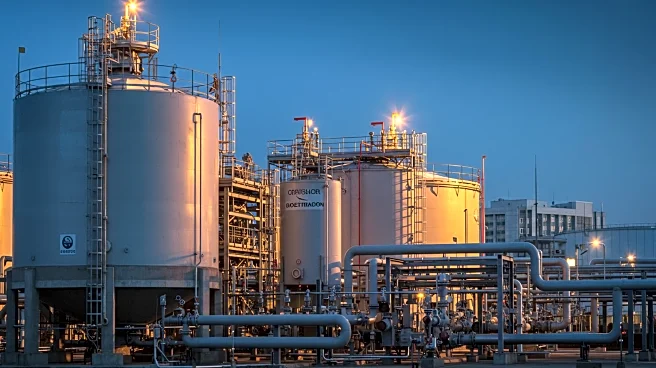What's Happening?
Vivergo Fuels, the UK's largest bioethanol plant, has criticized the government for not providing direct funding to the industry, labeling it as an 'act of economic self-harm.' The plant, located near Hull, is facing imminent closure following the removal of a 19% tariff on American bioethanol imports as part of the UK-US trade deal. The government stated that direct funding would not provide value for taxpayers or solve long-term industry challenges. Vivergo Fuels' managing director, Ben Hackett, expressed disappointment, highlighting the impact on workers, the region, and the supply chain, including farmers and hauliers.
Why It's Important?
The closure of Vivergo Fuels could have significant economic repercussions for the Hull region and the broader UK bioethanol industry. The decision not to support the plant financially may lead to job losses and affect the livelihoods of those in the supply chain. The situation underscores the challenges faced by domestic industries in competing with international trade agreements and highlights the need for strategic government support to sustain local manufacturing and production capabilities. The closure could also impact the UK's efforts to maintain a resilient CO2 supply, affecting various sectors reliant on bioethanol production.
What's Next?
The government plans to work with trade unions, local partners, and companies to support affected workers and their families. There may be further discussions on proposals to ensure the resilience of the UK's CO2 supply in consultation with the sector. The bioethanol industry may seek alternative solutions or advocate for policy changes to address the challenges posed by international trade agreements. Stakeholders will likely continue to monitor the situation and explore ways to mitigate the impact on the region and the industry.










